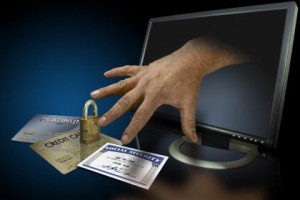Certified financial planner David Rae says he used to think that “anyone who could draw breath” could get an auto loan. Then one of his millionaire clients tried to buy a car — and failed.
The 42-year-old client was turned down for a loan because he had no credit scores , says Rae, who is based in Los Angeles.
Nineteen million American adults are “unscoreable,” lacking enough recent credit history to generate credit scores, according to the Consumer Financial Protection Bureau. They either have “thin” files, with too few accounts, or “stale” ones that haven’t been updated in a while. In my latest for the Associated Press, find out how having no scores can cost you.
 Today’s top story: How to break free from credit card inertia. Also in the news: How to travel like a minimalist and save big, paring down the price of a move to a new state, and the 401(k) fees you need to know.
Today’s top story: How to break free from credit card inertia. Also in the news: How to travel like a minimalist and save big, paring down the price of a move to a new state, and the 401(k) fees you need to know. Today’s top story: Where college students can find emergency money, food and housing. Also in the news: 8 ways to get cheap movie tickets, how the new CFPB prepaid card rule affects you, and your 2018 HSA contribution limit just changed (again).
Today’s top story: Where college students can find emergency money, food and housing. Also in the news: 8 ways to get cheap movie tickets, how the new CFPB prepaid card rule affects you, and your 2018 HSA contribution limit just changed (again). Today’s top story: How to build your ‘Oh, Crap!’ fund. Also in the news: A strategy that could help new grads retire sooner, United Airlines sets a new pet transport policy, and what happens to your debts when you die.
Today’s top story: How to build your ‘Oh, Crap!’ fund. Also in the news: A strategy that could help new grads retire sooner, United Airlines sets a new pet transport policy, and what happens to your debts when you die.  Today’s top story: Money advice for new graduates – and some old-school wisdom. Also in the news: Should you fix or break up with your car, types of stocks to look at if you’re getting back into the market, and how to determine if you need life insurance in retirement.
Today’s top story: Money advice for new graduates – and some old-school wisdom. Also in the news: Should you fix or break up with your car, types of stocks to look at if you’re getting back into the market, and how to determine if you need life insurance in retirement.  Today’s top story: What is synthetic identity theft? Also in the news: The top 5 places to invest in for new grads, why more credit cards are helping you speed through airport security, and what you don’t know about foreign transaction fees.
Today’s top story: What is synthetic identity theft? Also in the news: The top 5 places to invest in for new grads, why more credit cards are helping you speed through airport security, and what you don’t know about foreign transaction fees.